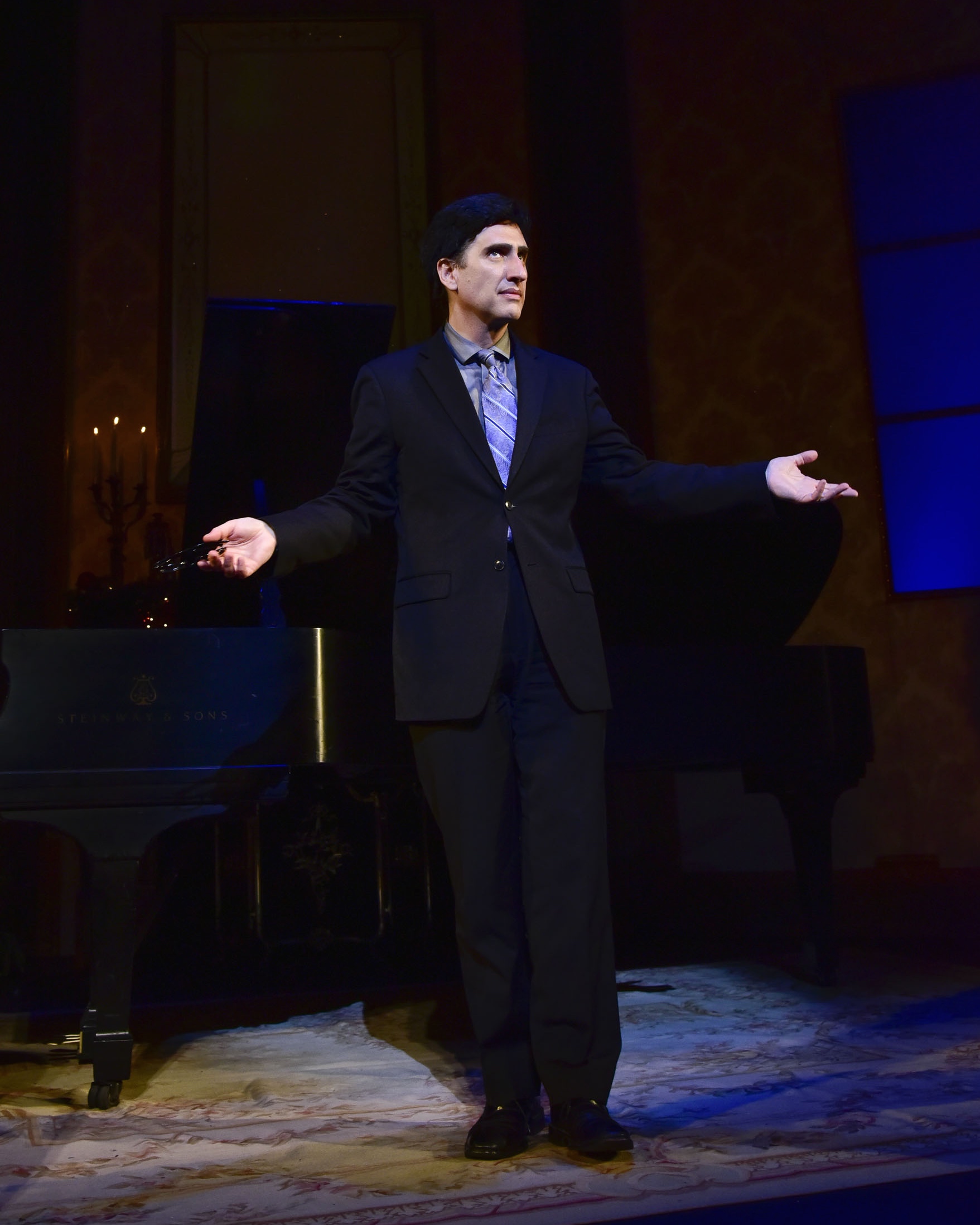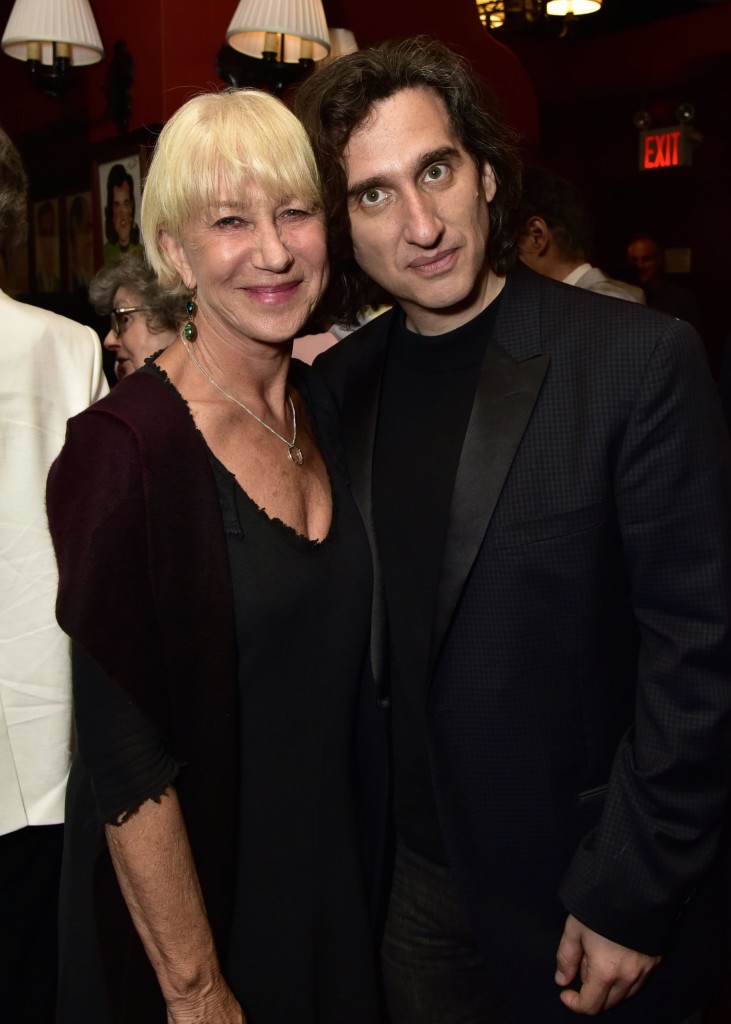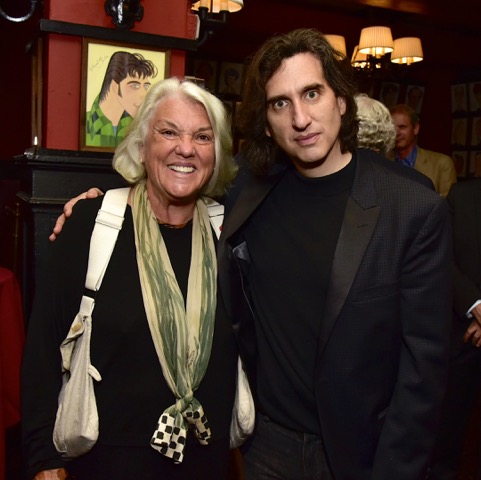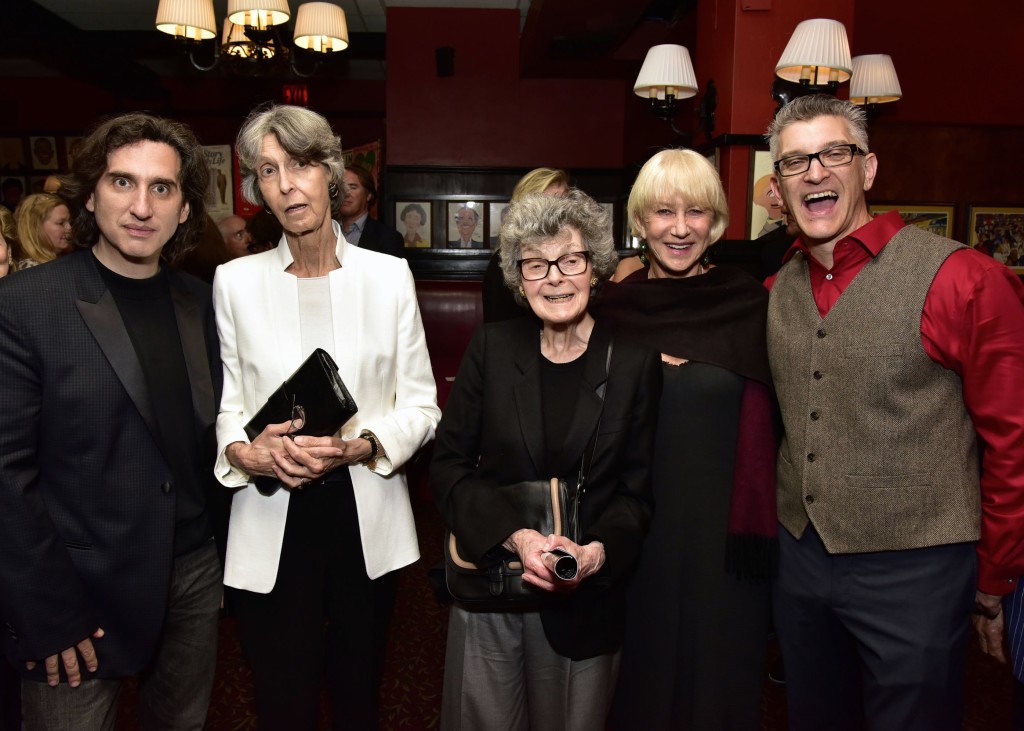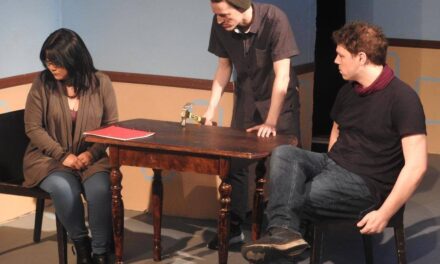by Marilyn Lester
Hershey Felder has found a niche for himself depicting various musical icons: George Gershwin, Leonard Bernstein, Frederic Chopin – so his portrayal of Irving Berlin, the keystone of the Great American Songbook, might be considered inevitable. Berlin’s career spanned 60 years in which he wrote an estimated 1,500 songs – many of them, such as “White Christmas,” Easter Parade,” “A Pretty Girl Is Like a Melody” and “God Bless America,” achieving iconic status.
In devising this one-man play, Felder, a pianist, composer, playwright, producer, director and actor, has written a crowd-pleasing winner. Felder has chosen key points from Berlin’s long life wisely, bookending the piece with Berlin at the end of his life, at age 101. Flashback to Berlin’s earliest memories of his Russian village being burned in a pogrom, the flight to America and the amazing sight of Lady Liberty in New York Harbor. With a studied Berlin accent, Felder spins the songwriter’s tale, launching into one of Berlin’s first efforts, “Marie from Sunny Italy” (1907) and then the song that made him famous across the globe, “Alexander’s Ragtime Band” (1911) which, Felder points out, is really a march and not a rag.
It doesn’t take long to figure out Felder is going to make this bio-play fun. His writing is smart, yes, but more, his delivery is animated, expressive and perfectly nuanced. As he slips easily into and out of other characters it becomes apparent that a good deal of the enjoyment comes from Felder’s pitch-perfect timing. There are jokes and witticisms. Speaking of Ethel Merman later in the piece, for instance, he calls her voice not human, more like a steamship foghorn. That got a big laugh.
Berlin’s writing process is covered, threaded through the piece. He actually began as a lyricist (and as a singing waiter), writing parodies to established melodies. He was also a self-taught pianist with no musical training. As a result, throughout his career, Berlin worked with arrangers, which were referred to as “musical secretaries.” Felder gingerly sidesteps the issue (well documented) of how much of the melodies attributed to Berlin were his own and how much could be attributed to these uncredited arrangers. Does it matter? According to Felder: no. We’re talking about Irving Berlin, of whom Jerome Kern famously said is American music. His genius, regardless of the percentages, is assured.
Berlin’s love of his adopted country is legendary, and is a large part of Felder’s presentation. Berlin enlisted in the Army during the first World War. He boosted troop morale by writing and producing the show Yip, Yip Yaphank which contained the song, “Oh! How I Hate To Get Up In The Morning” and which almost had a number that Berlin decided to put in a trunk. It surfaced in 1938 for Kate Smith: “God Bless America.” During World War II there was Holiday Inn with “White Christmas” and a show for the troops, This Is the Army, which Berlin toured for three years. Refusing to make money off of patriotism, Berlin famously donated royalties from many songs to charities. He also advanced integration with This Is the Army and by hiring Ethel Waters in 1933 for As Thousands Cheer, which contained the aching song, “Supper Time.”
Throughout the play, Felder relates key life events and the songs tied to them: the loss of his first wife after only six months of marriage, the crib death of his infant son, the crash of 1929. Berlin grieved and coped by writing songs (“When I Lost You,” “What’ll I Do?,” “Say It Isn’t So”). His second, fairy-tale marriage to Ellin Mackay (“Always”), the birth of children (“Blue Skies, “Everybody Knew But Me”) and Hollywood triumphs (“Puttin’ On the Ritz,” “Cheek to Cheek”) are also covered. Projections throughout the show, designed by Christopher Ash and Lawrence Siefert, add layers of interest and help bring Felder’s words that much more to life.
Scenic design, the living room of the Berlin house, complete with Christmas tree, was conceived by Felder and Trevor Hay, who also directed, with excellent attention to pacing and blocking. Sound design by Erik Carstensen and lighting design by Richard Norwood nicely added to the presentation.
With the advent of Rock n’ Roll, Irving Berlin (who probably had the most influence on the development of the Great American Songbook than any other composer of the 20th century) retired to his home at age 75, living largely as a recluse. In his wheelchair, at age 101, on the brink of his own death, Felder concludes with “I wrote for love; I wrote for my wife; I wrote for my children; I wrote for my country… and I wrote for you.” Thank you, Irving Berlin, and thank you, Hershey Felder, for sharing him with us so caringly.
Hershey Felder as Irving Berlin, June 6, 2016 at 8 PM (one night only)
The Town Hall, 123 West 43rd St., 212-997-1003, www.thetownhall.org
Opening Nite Photos by Eugene Gologursky/Getty Images for Hershey Felder:
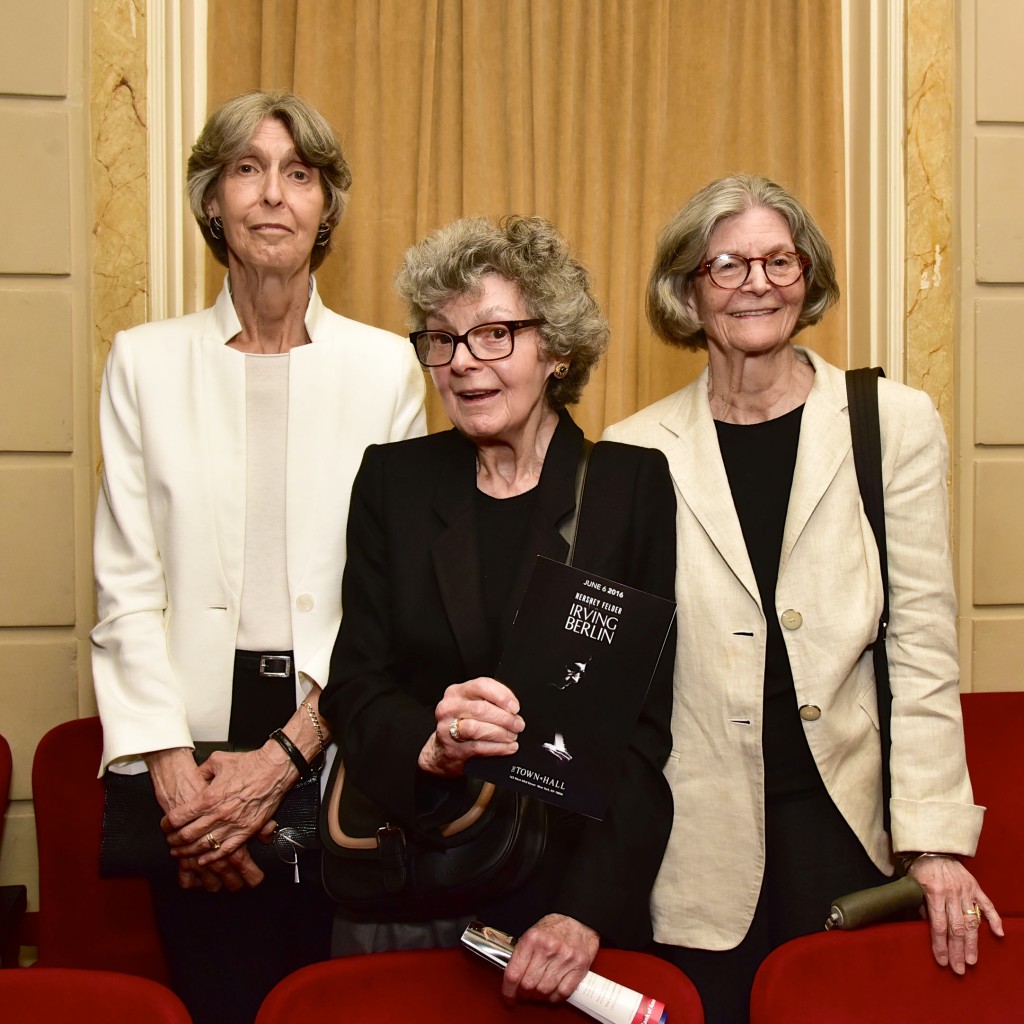

The three daughters of Irving Berlin – ELIZABETH PETERS, LINDA LOUISE EMMET and MARY ELLIN BERLIN BARRET


